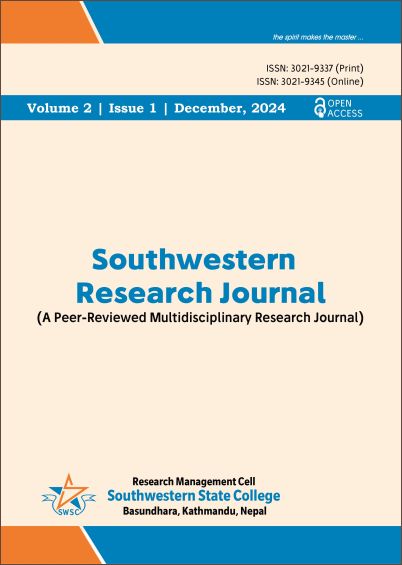Socio-Economic Status of Armed Conflict Victims: A Study of Kalikot District
DOI:
https://doi.org/10.3126/srj.v2i1.76789Keywords:
Armed conflict, displacement, economic crisis, Maoist insurgency, resilienceAbstract
This study examines the socio-economic and cultural impacts of the armed conflict in Kalikot District, Nepal, and evaluates the effectiveness of post-conflict recovery efforts. The research focuses on the experiences of displaced populations, including changes in their socio-economic status, educational outcomes, and cultural practices. Data collected from 115 respondents reveals that 47% attribute their hardships to both Maoist insurgents and state forces, with 42% specifically blaming the state’s actions. Despite significant disruptions, 45% of respondents believe their social status has improved especially among those who supported or aligned with the Maoists. Educational status showed a decline, with only 22.6% rating it as "Good" after displacement, compared to 80% before. Cultural practices also suffered, with only 22.6% viewing them as "Good" post-displacement, down from 80% previously. Support from local NGOs, INGOs, and government agencies has been vital in addressing immediate needs through projects in peace-building, human rights, education and infrastructure development. However, while short-term recovery efforts have been impactful, there is a need for sustained, long-term strategies to fully address the complex and enduring effects of the conflict. This study underscores the importance of integrating both immediate relief and comprehensive development plans to support lasting recovery and resilience in post-conflict communities. There is a big challenges to uplift the socio-economic status and to enhance the livelihood of the armed conflict victim peoples in Kalikot district. Dialogues are necessary among the stakeholders in order to create the lasting peace. The real victimized people are need to be identified properly and there is need to have psycho-socio and economic support to create the lasting peace in order to create social harmony.




